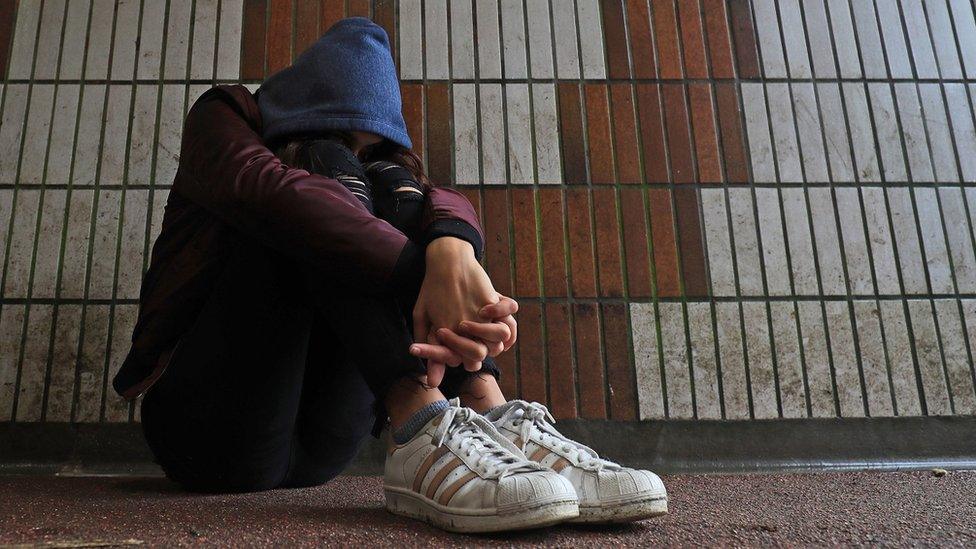Social workers begin strike in South Eastern trust
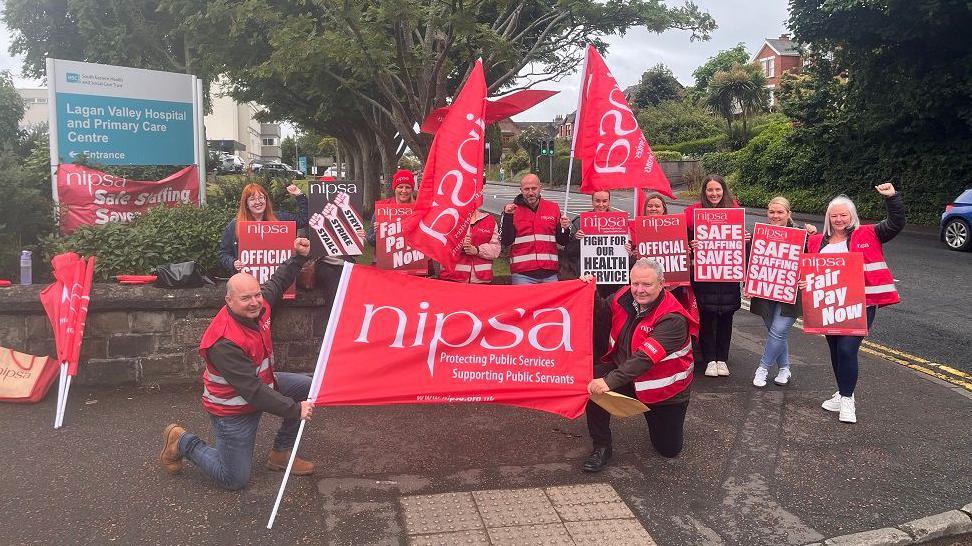
- Published
Social workers in the South Eastern Health and Social Care Trust's family and childcare services are staging a three-day strike in protest over staff shortages and work-related stress.
The industrial action by members of the Northern Ireland Public Service Alliance (Nipsa) trade union begins on Wednesday.
The union said the action is necessary to protect the “health and wellbeing” of social workers who provide family and childcare services.
It added that minimum cover plans are in place, but the Department of Health said it was "very concerned" about the impact of the strike on children, families and staff.
The department said it recognised the "sustained pressures that social workers are facing" and said action is being taken to ensure their workloads are manageable.
The strike is timed to coincide with the general election as union members believe attention was diverted away from the healthcare crisis during the election period.
Nipsa members from across the trust will stand at picket lines outside hospitals including Newtownards, Lagan Valley in Lisburn and Downshire in Downpatrick.
They will also picket outside the secretary of state’s office on Friday.
From the picket line
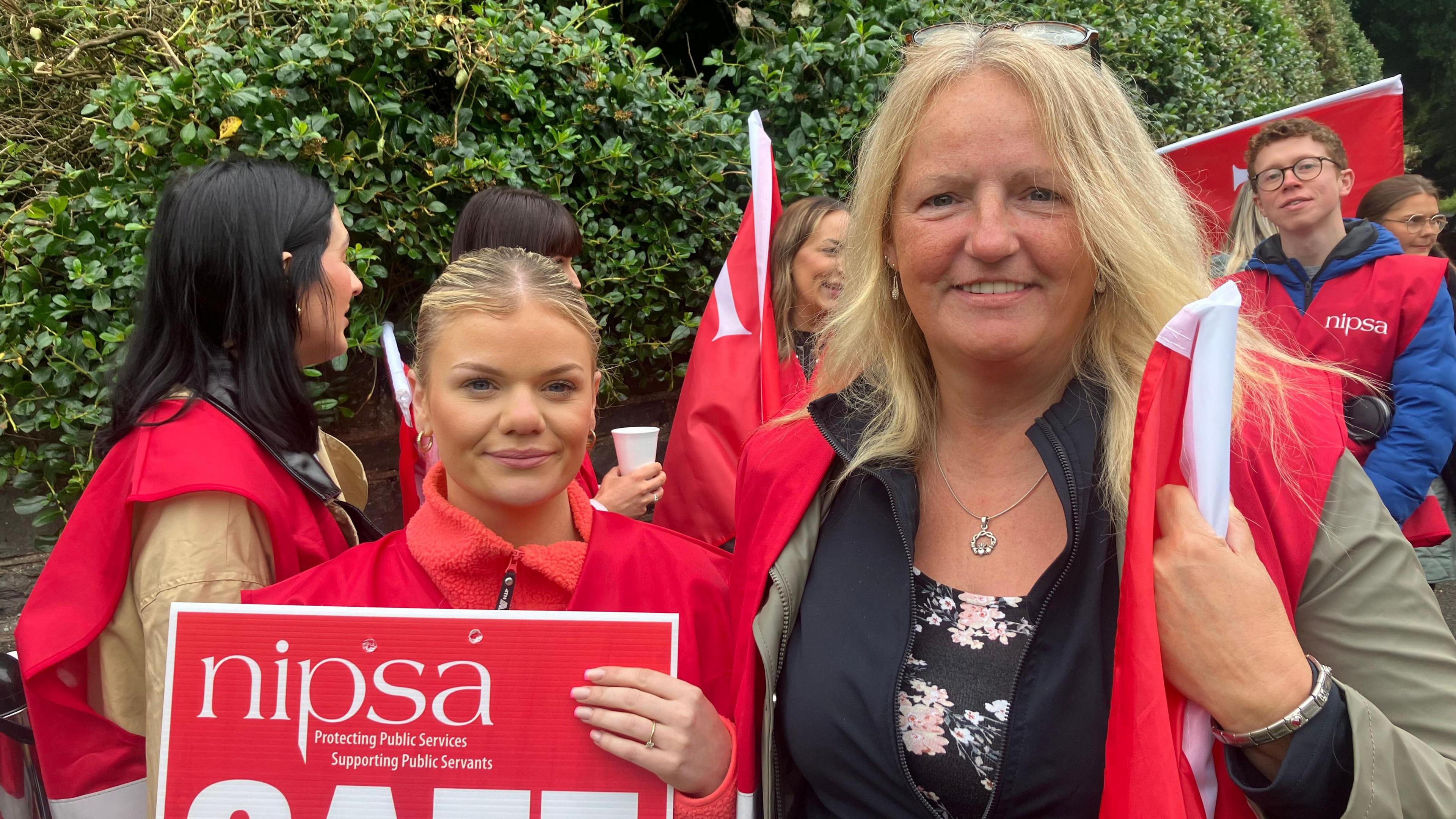
Chloe and Michelle said training and retaining staff is a huge problem
Speaking at a picket line at Lagan Valley Hospital in Lisburn, social worker, Eimear Lavery, said the situation for the workforce is "never ending".
"There aren't enough staff in children's services - we have a social worker doing the job of three – it’s unfair – we need to do something about it.
"We feel we have to do this – it’s gotten to the point were we have no other choice. It’s funding shortages and lack of care from those in power," she added.
In Downpatrick, social workers are at the picket line outside the Downshire Estate.
Michelle has been a social worker for 17 years and said the staff shortages are causing longer waiting lists for services.
"They’re aren’t enough social workers to cover the caseloads. For the children and families they’re waiting longer for a service.
"It’s a fundamental thing, they’re not training enough. There aren’t enough places available at colleges – at regional colleges and universities."
Chloe Shields has been in social work for three years, she said the job is difficult.
“I think it’s harder to retain staff. Children’s services is a really difficult job and a lot of people do go in to other areas so it is hard to retain staff.
"It has been a bit of a whirlwind so you really have to love your job to stay in it. And you have to passionate about the work you do."
Twelve-hour working days
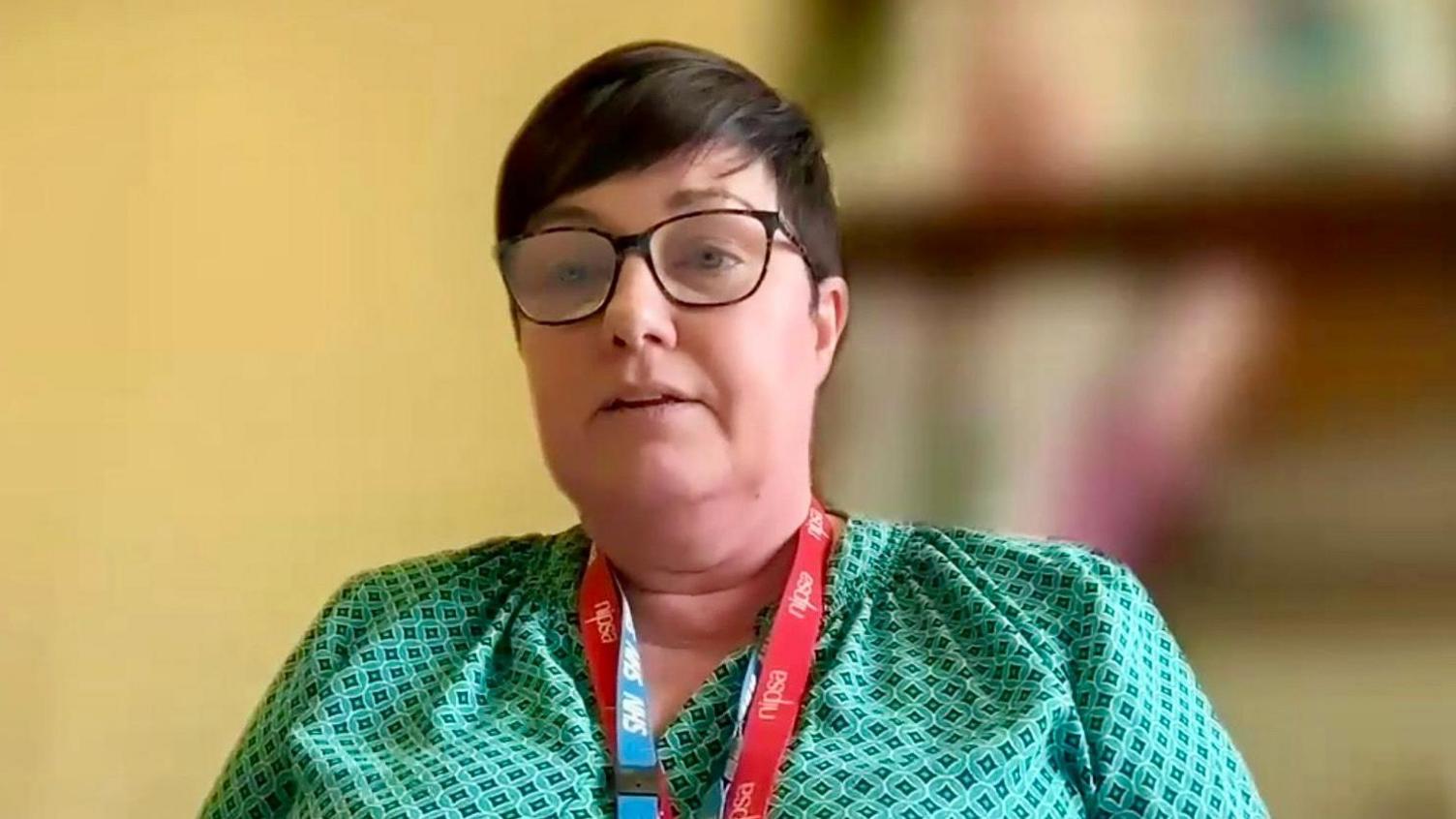
Roisin McConnell said her colleagues are "burnt out" and having to take sick leave
Nipsa says it has staged the strike because so many staff are leaving the profession under stress.
It also said there are not enough new social workers coming through the system to meet demand.
Roisin McConnell has been a frontline social worker within the trust's family team for 12 years.
“There has been a lot of shortages within the teams, leading to most staff members working long past their contracted hours – many days we are there for 12 hours,” she said.
“Staff then need to take sick leave as they are so burnt out, leading to even further staff shortages… it’s a vicious cycle.”
She added: “Job-related stress is a big factor in the social work profession."
Ms McConnell’s passion for social care is in the blood as she has a daughter who is also a social worker in the same trust.
“For me, the strike is about looking at our own children and grandchildren who want to take up the profession of a social worker.
"I want a better service for not only them but the clients we work with," she said.
'Exhausted, anxious and stressed'
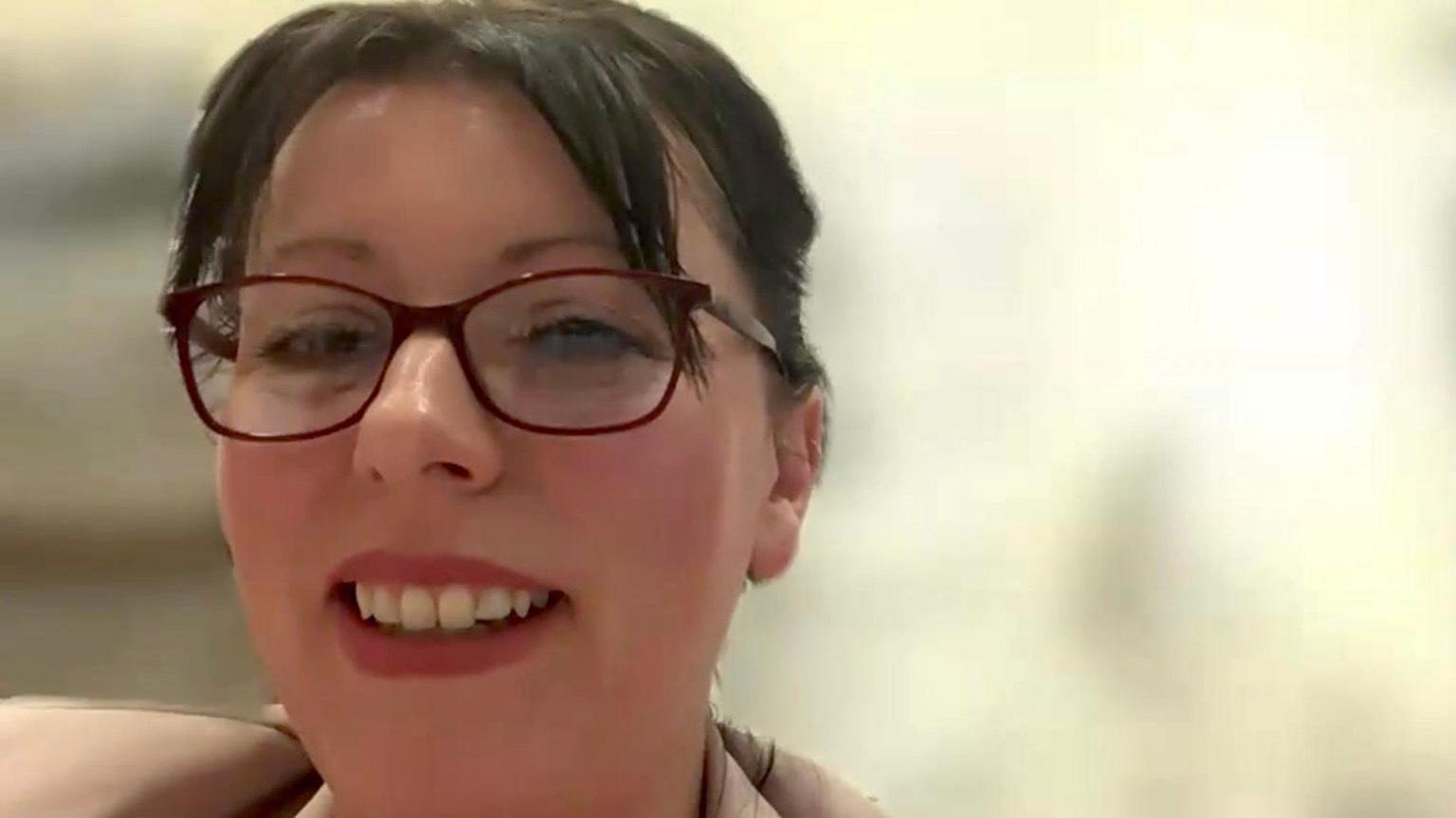
Debbie Barlow is Nipsa's Branch Secretary at the South Eastern Health Trust
Nipsa's branch secretary for the South Eastern trust, Debbie Barlow, also spent time working in residential child care.
“We have just had to take a stand for the safety of staff and campaign for them as this is not acceptable anymore” she said.
“Our teams are working so hard to ensure that the families and children they work with on the frontline are prioritised that staff may not even take their breaks.
"They are exhausted, anxious and stressed."
Ms Barlow explained that minimal service cover plans are in place for the next three days in a bid to reduce the impact on service users.
“At no time do we want to put anyone at risk," she said.
"Protective plans are in place to ensure that there will be skeleton staff working within the service."
She said Nipsa wants the Department of Health "to sit down and make a plan to protect staff wellbeing".
“We also need more social workers coming through the system – 380 students come through the universities each year and this year an additional 40 places were added.
"However, that is still not enough to cover this issue for the whole of Northern Ireland” Ms Barlow concluded.
In a statement, the Department and Health said it and the trusts are undertaking a series of "both short and longer term actions to ensure that social workers have safe and manageable workloads".
Programme of reform
It said this includes "a programme of workforce and service reform".
The department added that the number of students who can study social work each year is determined by the funding available.
It explained that in recent years, 260 social work training places have been commissioned at Queen’s University Belfast and Ulster University Magee, in Londonderry.
The department also commissions 25 additional social work training places via the Open University (OU), it said.
It added that the further 40 social work training places commissioned to begin in 2024/5 "will, in time, help to alleviate some of the workforce pressures".
Last year the author of a major report into reforming childcare services in Northern Ireland said that without change it was certain that more children would end up in care.
Prof Ray Jones was appointed in 2022 by former Health Minister Robin Swann to carry out the review, which was prompted by concerns about high levels of staff vacancies and many children and families not getting the help they needed.
His report found that more than 4,000 children were waiting for assessments and help from social care services in Northern Ireland at that time.
Related topics
- Published1 December 2023
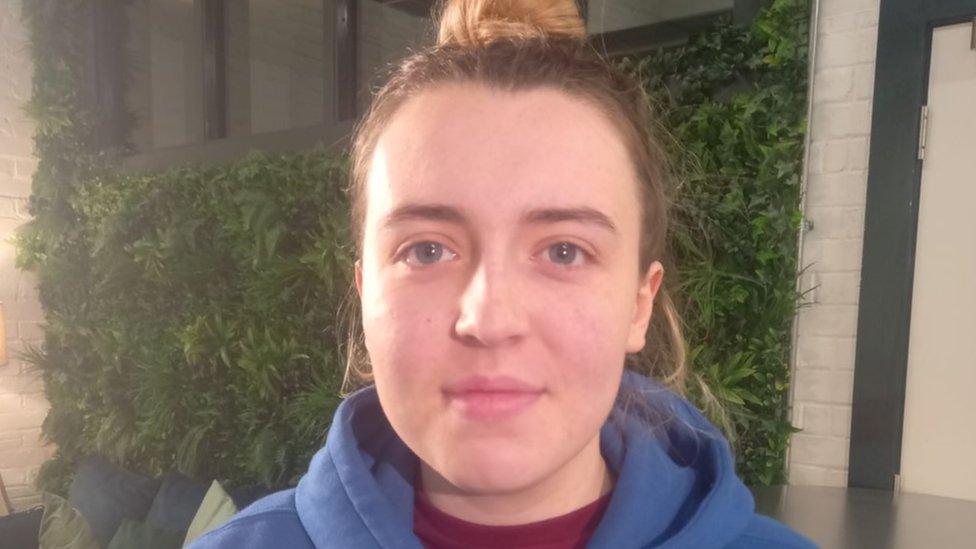
- Published21 June 2023
